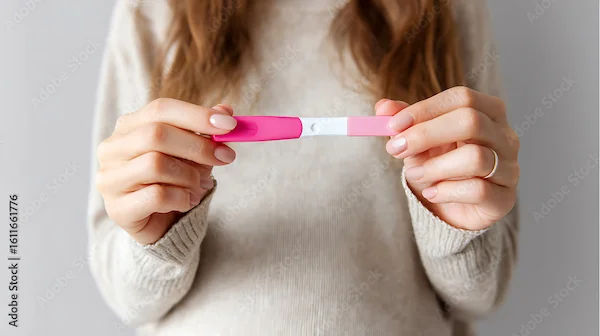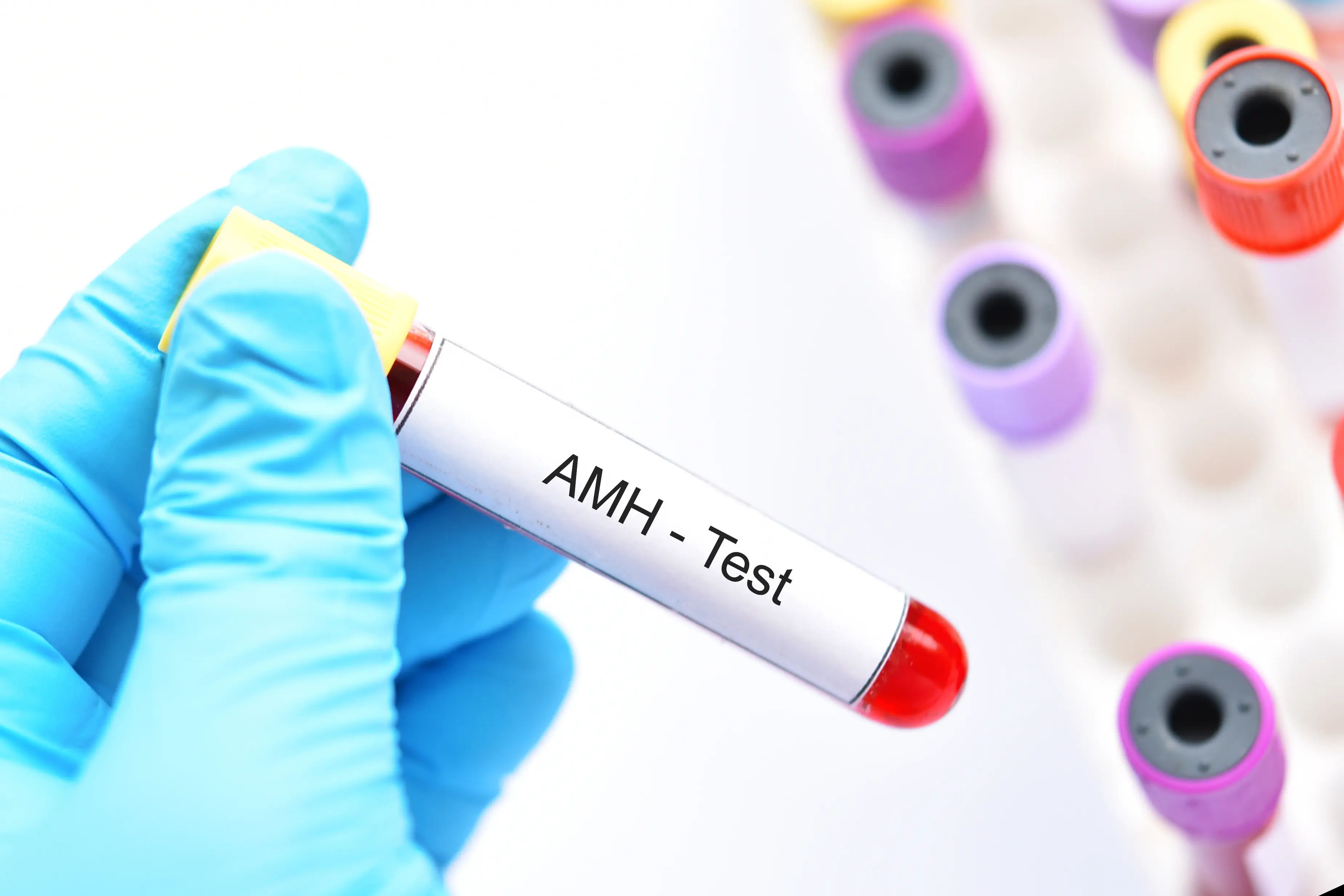Understanding Fertility
Explore the essentials of fertility, factors affecting conception, and tips to improve your chances of getting pregnant.

Written by Dr. M L Ezhilarasan
Reviewed by Dr. Shaik Abdul Kalam MD (Physician)
Last updated on 13th Jan, 2026
.webp?tr=q-80,f-webp,w-350,dpr-2,c-at_max 700w)
The journey to parenthood is a deeply personal one, filled with hope and excitement. For many, it begins with a simple question: "How can we get pregnant?" Understanding fertility is the first step toward answering that question. Fertility is a complex interplay of biology, timing, and health, and grasping its fundamentals can empower you on your path to conception. This guide will demystify the process, breaking down the science of how pregnancy occurs, the factors that influence it for both men and women, and the practical steps you can take to optimise your reproductive health. Whether you're just starting to think about a family or have been trying for a while, this comprehensive resource is designed to provide clarity, support, and evidence-based information to guide your journey.
What is Fertility? More Than Just Getting Pregnant
At its core, fertility is the natural ability to conceive a child. It's often mistaken as a single event, but it's actually a continuous state of health for both partners. For pregnancy to occur, an intricate sequence of events must unfold perfectly: a woman must release a healthy egg from her ovary (ovulation), a man must produce healthy sperm that can travel to and fertilise that egg, and the resulting embryo must implant itself in the woman's prepared uterus. A hiccup in any part of this chain can affect conception.
The Key Players: Sperm, Egg, and Uterus
The three primary components are the egg, the sperm, and the uterus. A woman is born with all the eggs she will ever have, and their quantity and quality gradually decline with age. A man, however, constantly produces new sperm, a process that takes about 60-70 days. For successful conception, a healthy sperm must meet a healthy egg within the fallopian tube. The fertilised egg (embryo) then travels to the uterus, which must have a thickened, receptive lining (endometrium) to allow for implantation.
The Fertility Window: Timing is Everything
A common misconception is that pregnancy can happen at any time during a cycle. In reality, there is a short "fertile window" each month. An egg survives for only 12-24 hours after ovulation, while sperm can live inside the female reproductive tract for up to 5 days. Therefore, the best time to try to conceive is in the days leading up to and including the day of ovulation. Tracking cycles through methods like calendar tracking, basal body temperature charting, or ovulation predictor kits can help identify this crucial window.
Consult an Infertility Specialist for the best advice
The Female Reproductive System and Fertility
Female fertility is a symphony of hormones and processes orchestrated by the brain, ovaries, and uterus.
The Ovulation Cycle Explained
The average menstrual cycle is 28 days, with ovulation typically occurring around day 14. The cycle begins on the first day of your period. The brain's pituitary gland releases Follicle-Stimulating Hormone (FSH), which prompts the ovaries to prepare follicles (each containing an egg). One follicle becomes dominant and releases a mature egg; this is ovulation, triggered by a surge of Luteinizing Hormone (LH). After release, the follicle transforms into the corpus luteum, producing progesterone to thicken the uterine lining for potential implantation.
How Age Impacts Female Fertility
Age is the most significant factor affecting female fertility. A woman's egg quality and quantity peak in her early 20s and begin a more rapid decline after age 35. By age 40, the chances of conceiving naturally each month are significantly lower, and the risk of miscarriage and chromosomal abnormalities increases. This is because older eggs are more likely to have genetic errors that can prevent implantation or lead to conditions like Down syndrome.
Common Female Fertility Challenges
Several conditions can disrupt ovulation or implantation. Polycystic Ovary Syndrome (PCOS) is a common hormonal disorder that can prevent regular ovulation. Endometriosis, where uterine tissue grows outside the uterus, can cause inflammation and scar tissue that blocks the fallopian tubes. Other issues include uterine fibroids, primary ovarian insufficiency (early menopause), and blocked fallopian tubes from past infections.
The Male Reproductive System and Fertility
Male fertility is often oversimplified but is equally complex. It hinges on the production, maturation, and delivery of healthy sperm.
Sperm Health: Quantity, Quality, and Motility
It's not just about count. Sperm health is assessed by three key parameters:
1. Count: The total number of sperm in a semen sample.
2. Motility: The percentage of sperm that are moving and swimming properly.
3. Morphology: The percentage of sperm that are normally shaped.
A successful pregnancy requires adequate numbers of strong swimmers with the correct structure to navigate the female reproductive tract and penetrate the egg.
Common Male Fertility Challenges
The most prevalent issue is a varicocele, an enlargement of veins within the scrotum that can overheat and impair sperm production. Other problems include infections that affect sperm production or cause scarring, retrograde ejaculation, hormonal imbalances, and genetic disorders like Klinefelter syndrome. Lifestyle factors such as smoking, excessive alcohol, and obesity can also severely impact sperm quality and production.
Key Factors That Influence Your Fertility Health
Your daily choices play a monumental role in your reproductive potential.
Lifestyle Choices: Diet, Exercise, and Stress
Maintaining a healthy weight is crucial. Being significantly underweight or overweight can disrupt hormonal balance and ovulation in women and reduce sperm count in men. A balanced fertility diet rich in antioxidants (found in fruits and vegetables), healthy fats, and whole grains supports cellular health for both eggs and sperm. Moderate exercise is beneficial, but excessive, intense exercise can sometimes hinder fertility. Chronic stress can also interfere with the hormones needed for ovulation and sperm production.
Medical Conditions and Medications
Conditions like uncontrolled diabetes, thyroid disorders, and celiac disease can affect fertility. Certain medications, including some for blood pressure, depression, and cancer treatments (chemotherapy/radiation), can temporarily or permanently impact reproductive function. It's essential to discuss your family-planning goals with your doctor when managing any chronic condition.
Environmental and Occupational Factors
Exposure to toxins, pesticides, heavy metals, and industrial chemicals can damage eggs and sperm. Prolonged exposure to heat (e.g., hot tubs, saunas, laptops on the lap for men) can reduce sperm production. For those concerned about specific exposures, consulting a doctor can provide guidance. If you're planning a pregnancy and have concerns about environmental factors, a doctor from Apollo24|7 can help you understand your risks and recommend next steps.
When to Seek Help: Recognising the Signs
Knowing when to consult a professional is key. General guidelines recommend seeking help if you're under 35 and have been trying for a year, or if you're over 35 and have been trying for six months. Seek help sooner if you have known issues like irregular periods, painful periods, a history of pelvic infections, or prior cancer treatment.
Fertility Testing for Women
Initial testing often involves blood tests to check hormone levels (FSH, LH, AMH, progesterone) at specific times in your cycle. An HSG (hysterosalpingogram) is an X-ray test to check if the fallopian tubes are open. A transvaginal ultrasound may be used to examine the ovaries and uterus.
Fertility Testing for Men
The first step is a semen analysis to evaluate sperm count, motility, and morphology. This is a non-invasive and highly informative test. Further testing may include hormonal blood tests or a physical exam.
Get Your Health Assessed
Boosting Your Fertility Naturally: Evidence-Based Strategies
While not a guarantee, optimising your health is the best first step for most couples.
Optimising Your Diet for Conception
Focus on a Mediterranean-style diet: plenty of plant-based foods, whole grains, healthy fats (like olive oil and nuts), and lean protein. Reduce intake of processed foods, trans fats, and sugar. Staying hydrated is also vital for all bodily functions, including the production of cervical fluid, which helps sperm travel.
The Role of Supplements and Vitamins
A prenatal vitamin with at least 400 mcg of folic acid is crucial for women to prevent neural tube defects. For both partners, Coenzyme Q10 (CoQ10) is an antioxidant that may improve egg and sperm quality. For men, supplements like zinc and selenium may support sperm production. Always consult a doctor before starting any new supplement regimen.
Medical Fertility Treatments: From IUI to IVF
When natural methods aren't enough, assisted reproductive technology (ART) offers hope. Treatments range in complexity:
- Medication: Drugs like Clomid or Letrozole can stimulate ovulation in women.
- Intrauterine Insemination (IUI): Washed, concentrated sperm are placed directly into the uterus around the time of ovulation.
- In Vitro Fertilization (IVF): Eggs are retrieved from the ovaries and fertilised with sperm in a lab. The resulting embryos are then transferred to the uterus.
- ICSI (Intracytoplasmic Sperm Injection): A single sperm is injected directly into an egg, often used for severe male factor infertility.
The Emotional Journey of Fertility
The path to pregnancy can be emotionally taxing. Feelings of stress, anxiety, sadness, and isolation are common. It's important to acknowledge these feelings and seek support. Communicate openly with your partner, consider joining a support group, and don't hesitate to seek counselling. Your mental well-being is an integral part of your overall health during this process.
Conclusion
Understanding fertility is about empowering yourself with knowledge. It’s recognising that conception is a complex process influenced by a multitude of factors, many of which are within your control. By adopting a healthy lifestyle, understanding your body's cycles, and knowing when to seek professional guidance, you can approach your family-planning journey with confidence and clarity. Remember, you are not alone. Millions of couples navigate this path every year. Be patient with your body, supportive of your partner, and proactive in seeking the information and care you need. If you have concerns or questions based on your unique health profile, consulting a specialist is always the best course of action. For personalised advice and to discuss your fertility health, you can easily consult a doctor online with Apollo24|7.
Consult an Infertility Specialist for the best advice
Consult an Infertility Specialist for the best advice

Dr Shruthi R
Endocrinologist
8 Years • MBBS, MD, DM (ENDOCRINOLOGY)
Bengaluru
Apollo Medical Center, Marathahalli, Bengaluru

Dr. Chaithanya R
Internal Medicine Specialist Diabetologist
16 Years • MBBS, MD Internal Medicine, Fellowship in Diabetes(UK), CCEBDM(PHFI)
Bangalore
Apollo Clinic Bellandur, Bangalore
(75+ Patients)
Dr Sumanth R
General Physician
2 Years • MBBS
Bengaluru
PRESTIGE SHANTHINIKETAN - SOCIETY CLINIC, Bengaluru

Dr. Anand Ravi
General Physician
2 Years • MBBS
Bengaluru
PRESTIGE SHANTHINIKETAN - SOCIETY CLINIC, Bengaluru

Dr. Mary Susan K S
General Physician/ Internal Medicine Specialist
13 Years • MBBS, MD INTERNAL MEDICINE
Bengaluru
Apollo Clinic, Sarjapur Road, Bengaluru
(25+ Patients)
Consult an Infertility Specialist for the best advice

Dr Shruthi R
Endocrinologist
8 Years • MBBS, MD, DM (ENDOCRINOLOGY)
Bengaluru
Apollo Medical Center, Marathahalli, Bengaluru

Dr. Chaithanya R
Internal Medicine Specialist Diabetologist
16 Years • MBBS, MD Internal Medicine, Fellowship in Diabetes(UK), CCEBDM(PHFI)
Bangalore
Apollo Clinic Bellandur, Bangalore
(75+ Patients)
Dr Sumanth R
General Physician
2 Years • MBBS
Bengaluru
PRESTIGE SHANTHINIKETAN - SOCIETY CLINIC, Bengaluru

Dr. Anand Ravi
General Physician
2 Years • MBBS
Bengaluru
PRESTIGE SHANTHINIKETAN - SOCIETY CLINIC, Bengaluru

Dr. Mary Susan K S
General Physician/ Internal Medicine Specialist
13 Years • MBBS, MD INTERNAL MEDICINE
Bengaluru
Apollo Clinic, Sarjapur Road, Bengaluru
(25+ Patients)
More articles from Fertility
Frequently Asked Questions
What are the first signs of infertility?
The primary sign is the inability to conceive after a year of unprotected, well-timed intercourse (or six months if the woman is over 35). For women, other red flags include irregular or absent periods, or very painful periods. For men, signs can include changes in sexual function or testicular pain/swelling.
Can stress really cause infertility?
While everyday stress doesn't cause infertility, severe, chronic stress can disrupt the hormonal balance necessary for ovulation and sperm production. It can also reduce libido, leading to less frequent intercourse. Managing stress is a key component of optimizing your natural fertility health.
How can I check my fertility at home?
For women, at-home ovulation predictor kits (OPKs) can help identify your fertile window. Some companies also offer at-home blood tests to measure hormone levels like AMH, which can give an indication of ovarian reserve. For men, at-home sperm test kits can provide a basic analysis of sperm count, though they are not as comprehensive as a lab analysis.
Does having regular periods mean I am fertile?
Regular periods are a good sign that you are ovulating regularly, which is essential for fertility. However, it does not guarantee fertility, as other factors like open fallopian tubes, a healthy uterine lining, and a partner's sperm health are also critical.
What is the best age for female fertility?
A woman's fertility is highest in her early 20s. It begins to decline gradually in her 30s, with a more significant decline after age 35. This is due to a decrease in both the quantity and quality of eggs.

_0.webp)


